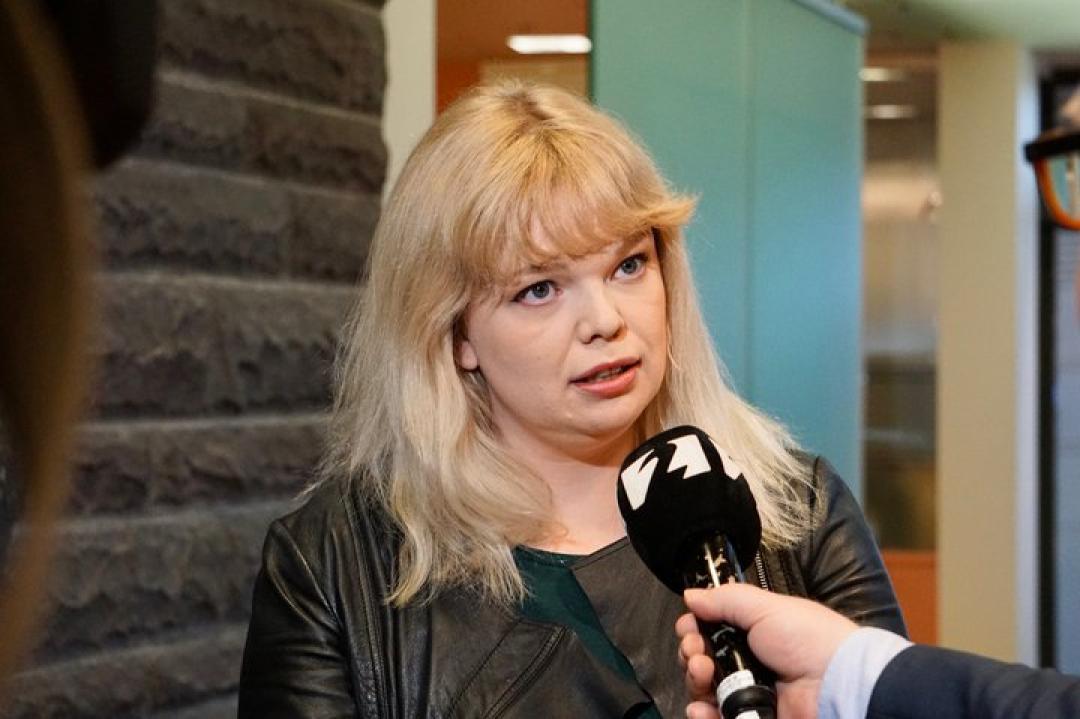
New PACE rapporteur on political prisoners in Azerbaijan conducts her first visit to Azerbaijan

On 5 September, Sunna Torhildur Evarsdottir, rapporteur for Parliamentary Assembly of the Council of Europe (PACE) on political prisoners in Azerbaijan, visited Baku and met with a group of human rights activists, reported turan.az.
The local Committee against Repression and Torture (CART) informed Evarsdottir about judicial reforms and an increase in the number of lawyers. “However, we informed the PACE representative that updating the judiciary and increasing the number of lawyers cannot be an indicator of the independence of the judiciary. These updates do not serve to solve the problem of political prisoners in Azerbaijan. One group of political prisoners is being released, new ones are being jailed,” the NGO representatives noted.
According to CART, Evarsdottir stated her plans to meet with several political prisoners in the Azerbaijani prisons during her three-day visit and prepare an objective report.
The meeting also included activists and journalists who are former political prisoners themselves, such as Intigam Aliyev, Khadija Ismail, Rasul Jafarov, Mehman Huseynov and recently released political activist Seymour Hazi.
The institution of the rapporteur on political prisoners in Azerbaijan was restored in June 2018. This was after an investigation by a special expert group in PACE on lobbying activities in the Assembly, which resulted in the failure of the report of former rapporteur Christoph Strasser in 2013. Evarsdottir was appointed the new speaker. Her visit was planned in Baku in early June, but was postponed by Azerbaijani authorities. On 5 September, her first visit in the role of the PACE rapporteur in Azerbaijan was carried out.
A day before, the Union for Freedom of Political Prisoners of Azerbaijan and the Working Group On Unified List of Political Prisoners in Azerbaijan each updates their lists of political prisoners, in which the names of 117 and 119 people, respectively, were entered. The government of Azerbaijan argues that the criminal prosecution of these persons is not politically motivated. The biggest group on this list are those that are dubbed as “the believers”- 55 persons that were classified by the Azerbaijani courts as Islamic extremists and that were prosecuted for their alleged activities against the state.
According to the criteria of the Council of Europe a political prisoner is a person deprived of his or her personal liberty if: 1) the detention has been imposed in violation of one of the fundamental guarantees set out in the European Convention on Human Rights and its Protocols (ECHR), in particular freedom of thought, conscience and religion, freedom of expression and information, freedom of assembly and association; 2) the detention has been imposed for purely political reasons without connection to any offence; 3) for political motives, the length of the detention or its conditions are clearly out of proportion to the offence the person has been found guilty of or is suspected of; 4) for political motives, he or she is detained in a discriminatory manner as compared to other persons; and 5) the detention is the result of proceedings which were clearly unfair and this appears to be connected with political motives of the authorities.
In March 2019, a large amnesty took place, releasing about 50 people who were perceived to be political prisoners by local human rights activists. The deficits in the areas of democracy and human rights in Azerbaijan are perceived as one of the most difficult dialogue topics between the European Union and Azerbaijan.
See Also


Mirzoyan Meets US Deputy Assistant Secretary Joshua Huck

Azerbaijani President Holds Talks with UAE and German Business Delegations on Economic Cooperation

Grigoryan Confirms Armenia’s Readiness to Dissolve OSCE Minsk Group Upon Peace Treaty Signing

Azerbaijani Official Warns of Ecological Risks to Caspian Sea, Similar to Lake Urmia and Aral Sea

